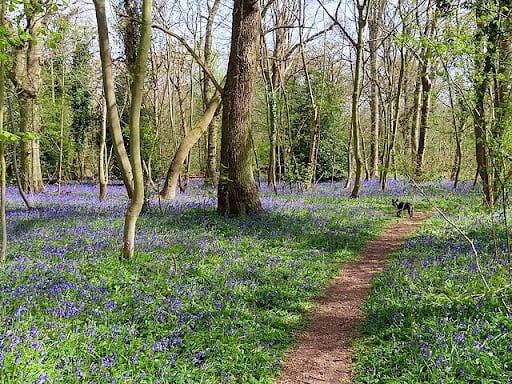St Hilda’s College is set to plant 5000 trees in Radley Large Wood over the next three years to help protect and diversify the woodland area and combat the impact of ash dieback – a fungal disease which kills ash trees. The college received £21,115 from the Rural Payments Agency to fund the project as part of the government’s Countryside Stewardship Programme.
St Hilda’s purchased Radley Large Wood, which lies just south of the Oxford ring-road, in 2022 and has worked closely with the Forestry Commission to create a 10-year management plan for the area. Before St Hilda’s became the custodians of the woodland area, there was scant active management, with many areas overgrown and, in some areas, ash dieback affecting up to 40% of trees in some areas.
The tree planting is part of St Hilda’s broader goal of improving sustainability which involves achieving net zero emissions and improving biodiversity. The college also hopes that the project will enhance local wildlife habitats.
The college also wants to ensure that the wood remains accessible to the public. Falling branches as a result of ash dieback can make woodland areas unsafe for visitors and nearby properties. St Hilda’s bursar, Chris Wood, told Cherwell by combating the disease, “the College’s intention is to ensure that Large Radley Wood becomes a truly living woodland for the benefit of all.”
The college has warned that occasionally the active management of woodland areas can appear “stark” but emphasises that it is crucial for the long-term health of the area and limiting the impact of ash dieback disease.
The Countryside Stewardship scheme is an initiative by the UK Government which aims to protect, restore and enhance the environment by providing grant funding for farmers, foresters and lang managers. It is especially committed to countering the effects of climate change.
The grant will cover the essential activities of the project which involve planting, maintaining and protecting the newly-planted trees to ensure their growth and survival. Hilda’s will plant several varieties of native species in segments across the Radley Large Wood, including oak, sweet chestnut, and hornbeam. This particular variety of species has been selected to ensure ecological resilience, as well as the long-term health of the woodland.
The college has warned that occasionally the active management of woodland areas can appear “stark” but emphasises that it is crucial for the long-term health of the area and limiting the impact of ash dieback disease.


